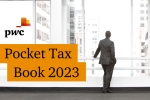
-
76%
CEOs in Asia Pacific expect global economic growth to improve in 2022.
-
58%
of Asia Pacific CEOs rank health risks as their top priority to address.
-
60%
of companies in the region have made, or are progressing towards, a net-zero commitment.
-
19%
of Asia Pacific CEOs have targets related to non-financial outcomes.
Discovering the path to growth
As the global economy continues to recoup following the impact of COVID-19, Asia Pacific is projected to remain the fastest growing region in the world, led by China and India. Yet amidst optimism still lies various challenges ahead for the region, such as supply chain disruptions and economic volatility.
The 25th edition of our flagship Annual Global CEO Survey sheds light on what almost 4,500 CEOs worldwide, including 1,618 CEOs in Asia Pacific, are thinking of their growth prospects and emerging issues as they take on 2022. This report is an extract from the 25th Annual Global CEO Survey - Asia Pacific, tailored to include information relevant to the Vietnam market.

What matters to Vietnam?
Vietnam real GDP growth in 2021 slowed to 2.58% due to the impact of the 4th wave of the pandemic. However, according to the forecast by the IMF, the country will bounce back strongly in 2022 and become the fastest-growing ASEAN economy, at 6.6%, following by Philippines (6.3%) and Malaysia (6%).
Based on figures of 2021, the country is also on track to recover from COVID-19 in terms of total export value with 19% growth. Given the latest Regional Comprehensive Economic Partnership (RCEP) that came into effect on 1 January 2022, the trading relations with global markets will continue to be on an upward curve.
Similar to most of the countries in the Asia Pacific region, the Delta variant surged in Vietnam in April 2021 and became the most challenging wave to date. Although the speedy vaccine rollouts enabled the nation’s economic recovery, the Omicron variant of concern in late November still remains a key concern in Vietnam, as well as in the region. Nevertheless, the country is determined to shift from ‘zero COVID’ to ‘living with COVID’ mode. The government issued Resolution 128 as a first step to live safely with the new normal situation, followed by gradually opening the borders.
2021 United Nations Climate Change Conference weeks, also known as COP26 is a milestone in the global effort to solve the climate crisis. Vietnam has also made a stronger commitment to tackle climate change.
Some first steps in converting pledges into actions including regulation on Environment Protection, legalise the establishment of carbon pricing in the form of an Emission Trading Scheme for greenhouse gases. A carbon tax could also be developed under the overall framework provided by this law. In addition, greater cooperation between Vietnam and other international parties was established. Vietnam is part of the ‘Energy Transition Mechanism’ - powered by the Asian Development Bank to further phase out fossil fuel energy.
Way forward - Priorities for the CEO
- Redefining the balance of short and long term profitable growth
- Recalibrating skills
- Resetting the conversation
- Reappraising succession
- Rethinking incentives
- Reimagining collaboration
Related content









